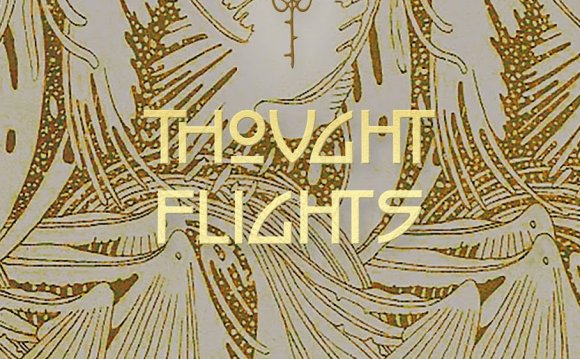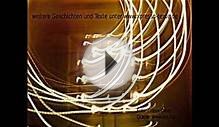
Though nevertheless regularly known as Germans, Austrian novelists have seen a recent run of important and commercial success. The "difficult" prose of the past has been replaced by a focus on story-telling, with ladies article writers producing no less interesting work with the style than the brand-new male "narrative miracles". However experimentalism is by no indicates completely: darkly humorous and self-referential "writer's books" may booming. When you look at the most recent essay in Eurozine's series "Literary perspectives", critic Daniela Strigl surveys a contemporary Austrian scene towards the top of its game.
The German Book Prize (Deutscher Buchpreis) was initially granted in Frankfurt in July 2005. According to the German Publishers & Booksellers Association, it had been meant to go to the "best book inside German language" therefore "to attract attention to German-speaking authors across nationwide edges". The initial variety of twenty brands ended up being nevertheless called a "longlist", in English, plus the range of the six finalists a "shortlist". Austrian literature scored an immediate away victory: it absolutely was Arno Geiger's family saga Es geht uns instinct ("We're successful") that won the prize while the glory, while Friederike Mayröcker and Daniel Kehlmann additionally managed to get to the last.
In 2006 a German copywriter, Katharina Hacker, won the reward with Die Habenichtse ("The Have-Nots"). It absolutely was striking that maybe not one Austrian name appeared regarding the shortlist, though there was in fact five within the preliminary longlist. Thomas Glavinic with his very nearly universally acclaimed novel Die Arbeit der Nacht ("Night's Work", 2006) – a person wakes up-and understands that he's the sole guy on earth – ended up being, astonishingly, not just one of those. Possibly this time around the jury desired to select a German guide therefore play it safe. Probably the national structure of the shortlist was certainly pure coincidence. Experience informs us, however, that role of opportunity in juries' choices tends to be minimal.It would have been understandable if Germany's literary functionaries had selected here to stem the wave of Austrian success. Austrian supremacy ended up being every where to be seen: from the Leipzig guide fair essay reward in 2006, obtained by Franz Schuh for his virtuosic number of essays Schwere Vorwürfe, Schmutzige Wäsche ("Strong Accusations and Dirty Linen"), on Heinrich Heine Prize, awarded to Peter Handke but later on recalled on governmental grounds (Handke had given a speech at Slobodan Milosevic's funeral). The German responses veered between open denunciation and blatant tries to incorporate the Austrian article writers into German literary works. Exactly what the entire world saw as anything only also huge, the experts must cut down to size (preferably garden gnome size). When Elfriede Jelinek won the Nobel Prize in 2004, Iris Radisch rushed to downgrade the woman in Die Zeit to your condition of a "regional author". Looked over in that way, there was clearly no great difference between Hamburg (in which Die Zeit is posted) as well as the Styrian town of Mürzzuschlag (in which Jelinek came to be), using headline for the Styrian version associated with the Kronen-Zeitung flowing: "Upper Styrian lady wins Nobel reward for Literature".
The highest worldwide recognition for Austria's most challenging author arrived at a time when anyone in Germany had very long since cultivated sick and tired of their particular neighbour's fascination with unique depressing last. In the case of Thomas Bernhard, regional gown and world-class literary prestige could still be brought under a single fabric hat. But meanwhile, German critics – and females experts specially – had been reacting with increasing discomfort to your export of nationwide disorders to a country with very enough of its. These were no longer at all contemplating labouring over a type of literature notorious because of its erotic, playful relationship with language. All those champions regarding the Georg Büchner reward – the highest difference for German-speaking writers – Albert Drach, H.C. Artmann, Ernst Jandl, and Friederike Mayröcker, certainly Jelinek too, all had their particular problems with ease, quick storytelling included. For several it appeared an anachronism that in 2006 the eternally youthful and therefore experimental author Bodo Hell won a prize at the Ingeborg Bachmann Competition in Klagenfurt. As German author Jana Hensel opined with flawless reasoning in Die Zeit, the problem had been that because the occasion is aimed at "German-language literature", "Austrian and Swiss critics will have to be here, which after that obviously put forward Austrian or Swiss writers". Hence "the choice is topic from extremely outset to a criterion that includes little or nothing to do with literary works".
For most article writers in Austria, the necessity for a literary works fit for the EU is a German language complement Germany. German editors have constantly attempted to adjust their Austrian article writers to the German market by weeding down "national-linguistic idiosyncrasies" inside their texts. The greater they discovered the greats, Bernhard and Jelinek, hard peanuts to break, the greater keenly they nibbled away on idiomatic "problem areas" associated with the lower article writers, with half-hearted intervention frequently begetting bilingual cross-breeds. Many Germanize on their own of their own agreement in over-hasty obedience, whereas braver authors continue the attack: Wolf Haas's thrillers featuring the ex-detective Brenner have grown to be cult publications – the most recent becoming Das ewige Leben ("Eternal Life", 2003). Nonetheless they had been originally denied by many writers, maybe not minimum because of the highly colloquial design which subsequently made them famous. Inside the latest guide, which takes the form of an interview, Haas sarcastically translates from German into German (Das Wetter vor 15 Jahren ["the current weather fifteen years ago", 2006]).
Renowned authors who do maybe not harp on about their Austrian history inside their work tend to be perceived as German – Peter Handke, for instance. He, or Christoph Ransmayr, or Norbert Gstrein, are talked about in an anthology bearing the name the current German Novel, continues to be self-evident. Volker Weidemann, in Lichtjahre. Eine kurze Geschichte der deutschen Literatur von 1945 bis heute ("Light-years: a short history of German literary works from 1945 for this day", 2006), subsumes Austrian literary works in German heading, hence continuing, in the lack of knowledge of specific historical advancements in Austria, the typical bad rehearse of even more scholarly works. Inside context, Jelinek and Bernhard discover their spot alongside the Bavarian writers Kroetz and Achternbusch in a chapter entitled, "Wut im Süden" ("Fury in the South"), like a choleric appendix somewhere down in southern Germany.
RELATED VIDEO












